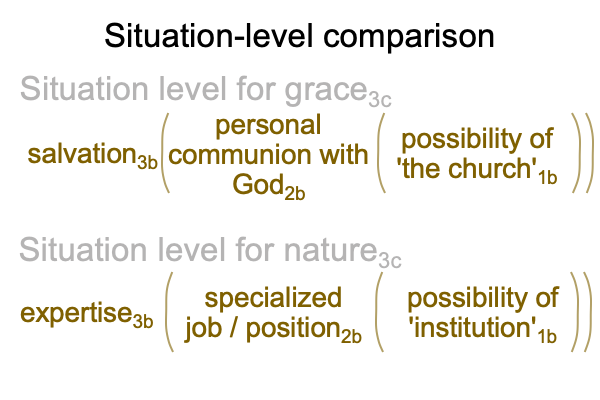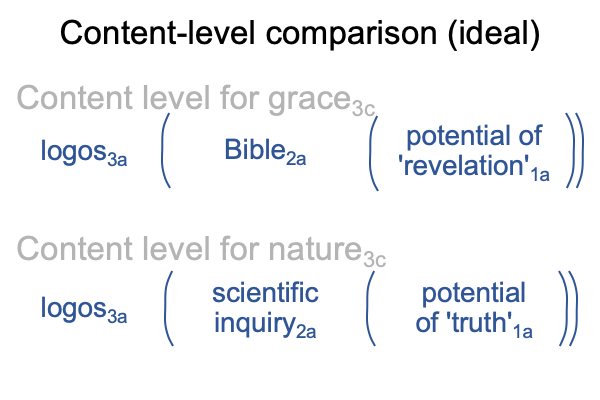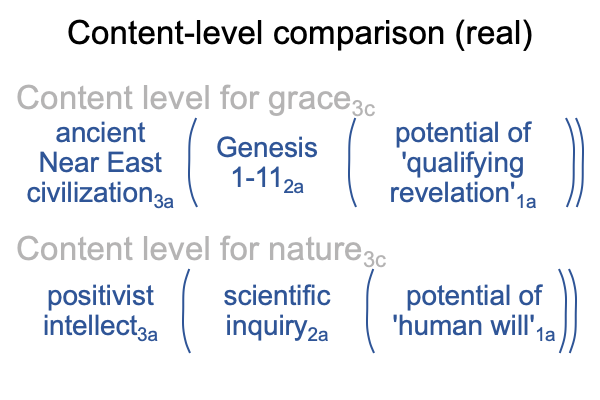0083 The start of chapter 4 suggests that the distortions occurring on the perspective-level of the interscopes of grace3cand nature3c may be due to the challenges of specialization.
Here is a comparison of the situation-levels.

0084 The theologian has knowledge about salvation3b. Indeed, the theologian3b brings people into communion with God2b through the possibilities of ‘the church’1b. However, the authority of the churches is now being challenged by those who do not view Genesis 1-11 as scientifically credible.
I suppose this lack of scientific credibility is what Ross intends to solve.
The problem is that revelation1a is not supposed to be scientifically credible. It is supposed to be… um… revealing.
0085 The scientist has knowledge about a particular topic3b. Expertise3b brings specialized tasks2b into relation with the potential of ‘an institutional setting’1b. That ‘institutional setting’1b is not ‘the church’1b, even though it1b may be highly ideological.
Why would the world1b of scientific2b expertise3b be ideological?
Well, what does it take to say that a model should replace the thing itself?
Ah, it takes will power.
0086 So, what am I saying?
Well, here is a comparison of the content-levels for the interscopes of grace3c and nature3c.

0087 For grace3c, the normal context of the logos3a brings the actuality of Genesis 1-112a into relation with the potential of ‘revelation’1a.
For nature3c, the normal context of the logos3a brings the actuality of scientific inquiry2a into relation with the potential of ‘truth’1a.
0088 One beauty of these formulations is that both theology and science share a common content-level normal context3a. The word, “logos”, means “word”, as well as “the study of…” and so on.
To me, “logos” is not like a gesture-word of hand talk, characteristic of the Lebenswelt that we evolved in. “Logos” is not based on images or indications. “Logos” does not convey the impression of an implicit abstraction.
Instead, “logos” is like the spoken word of speech-alone talk, characteristic of our current Lebenswelt. “Logos” starts with purely symbolic labels. “Logos” conveys the impression of explicit abstraction.
0089 Beauty is a transcendental.
So, I better watch out and look again.
Surely, beauty slips out of the vision when I consider what theologians and scientists are actually doing. In chapter 4, Ross discusses what the theologians are up to. But, the scientists are up to no good, as well. The content-levels have changed in order to accommodate “pressures”. Concessions must be made in order to keep one’s job.

0090 Surely, this comparison looks different than what was expected from the fact that grace and nature are distinct and separate.
But, this is what Christians are stuck with, in my version of Ross’s historical introduction.
